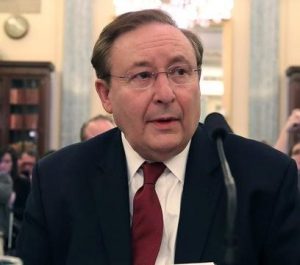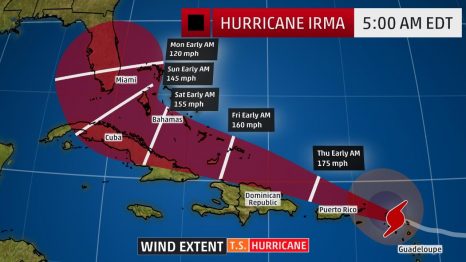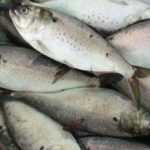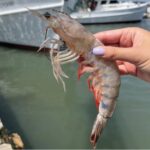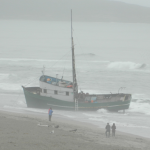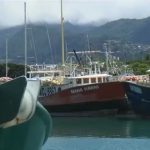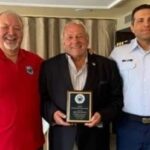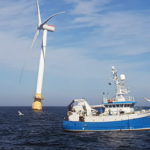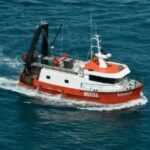Category Archives: Caribbean

Commerce Secretary allocates $200 million fishery disaster funding
Today, Secretary of Commerce Wilbur Ross allocated $200 million in disaster funding appropriated by Congress to help fishermen and the businesses and communities that rely upon them to recover and rebuild following hurricanes Harvey, Irma, and Maria in 2017. Funding has also been appropriated and allocated for the disasters that devastated the West Coast and Alaska fishermen from 2014 to 2017. >click to read<10:03
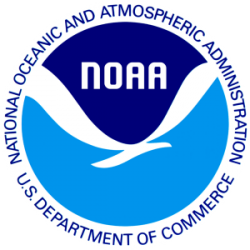
2017 Report to Congress on the Status of U.S. Fisheries
NOAA Fisheries NMFS is pleased to present the 2017 Report to Congress on the Status of U.S. Fisheries managed under the science-based framework established by the Magnuson-Stevens Fishery Conservation and Management Act (MSA). The 2017 report highlights the work toward the goal of maximizing fishing opportunities while ensuring the sustainability of fisheries and fishing communities. Due to the combined efforts of NOAA Fisheries, the eight regional fishery management councils, and other partners, three previously overfished stocks were rebuilt and the number of stocks listed as overfished is at a new all-time low. >click to read<16:04
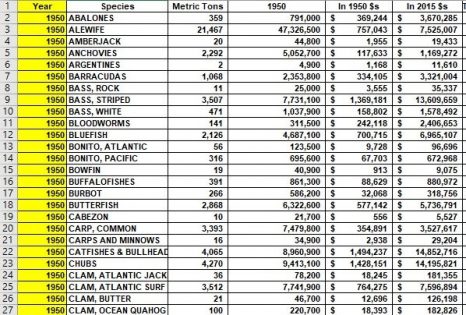
Commercial Fishing in the U.S. Exclusive Economic Zone – What was being caught and where back to 1950
What is the status of commercial fishing in the U.S. Exclusive Economic Zone, the waters from 3 to 200 miles off our coastline? Generally speaking – something that the “bureaucrats in charge” have developed a great deal of facility in doing – it’s pretty good. Since the National Marine Fisheries Service started getting serious about tracking commercial landings (or at making those landings readily accessible) in 1950, the total weight of our domestic landings has increased from 4.9 billion to 9.8 billion pounds. The value of those landings, when corrected for inflation, has increased from $3.3 billion to $5.2 billion, almost as good. Nils E. Stolpe/FishNet USA >click to read<17:03

Sustainable Shark Fisheries and Trade Act of 2018 – bill nets solutions for overfishing
A new bipartisan bill introduced in U.S. Congress this month encourages a science-based approach to significantly reduce the overfishing and unsustainable trade of sharks, rays and skates around the world and prevent shark finning. The Sustainable Shark Fisheries and Trade Act of 2018 was introduced in the U.S. House of Representatives by Rep. Daniel Webster, R-FL, and Rep. Ted Lieu, D-CA, along with co-sponsors Rep. Bill Posey, R-FL, Rep. William Lacy Clay, D-MO, and Rep. Walter Jones, R-NC., >click to read<09:39
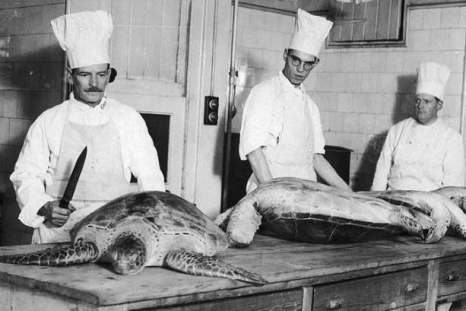
Why have Americans stopped eating turtle?
America has a food diversity problem. Chicken, pork, and beef account for many of the animal proteins found on our dinner table—the product of decades of agricultural industrialization—and this has left us with cheaper but more limited options at the butcher’s counter. Once a year we all sit down to eat turkey, but when was the last time you had snipe, mutton, or rabbit? Perhaps the mightiest protein to fall out of favor, though, is turtle. From the earliest colonial days, Americans were smitten with this four-legged reptile, and turtle soup—its most common preparation—was a restaurant norm into the 1970s and ’80s, a dish exuding luxury status. But today, turtle has almost completely disappeared from our diet. What happened? >click to read<18:01

US Commerce Secretary Wilbur Ross questions safety of seafood imports
U.S. Commerce Secretary Wilbur Ross addressed U.S. fisheries regulations and his concern about the quality of seafood imports with the U.S. Congress on Tuesday, 20 March, and he said he’s looking for NOAA Fisheries officials to work harder to reduce the country’s seafood trade deficit.,, “It’s one of my pet peeves,” Ross said, when asked by U.S. Rep. Steven Palazzo (R-Mississippi) what he planned to do to reduce the country’s seafood trade deficit. “I hate the idea that with all the water surrounding us and all the water inland that we have a trade deficit in fish. >click to read<13:05
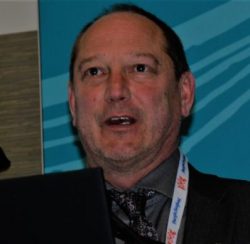
US fisheries’ leader Oliver asserts ‘business-minded’ stance
The US’ top regulatory authority on fishing used his first appearance ever at a Seafood Expo North America (SENA) conference on Sunday to describe how he was reshaping the mission at the National Oceanic and Atmospheric Administration (NOAA) to create more of a pro-business environment. Commercial fishermen largely applauded the Donald Trump administration’s selection of Chris Oliver to serve as NOAA’s assistant administrator of fisheries in June 2017. >click to read< 09:41
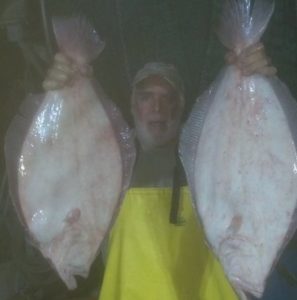
The US Senate needs to support the AMERICAN FISHERIES ADVISORY COMMITTEE ACT, S1322
To all, My name is Joel Hovanesian and I am a commercial fisherman who resides in RI but have held a CT. licence for some 30 years. I have a small inshore vessel now after selling my offshore boat in 2010. I have been dealing with Mike Gambardella since he started in the Borough. I want to bring an issue forward and give insight to some thoughts. I have been an outspoken critic of the way we have been managing our fisheries here in New England and other places on the Eastern Seaboard. We all recognize the fact that regulations need to be in place for obvious reasons, however as often happens when the Federal Government gets involved with things, they have a tendency to take on a life of their own. >click to read<13:36

What a disappointment. It seems Senator Markey is still holding out on Bill S1322, American Fisheries Advisory Committee Act
What a disappointment. I just got a call from Bruce Schactler of the National Seafood Marketing Coalition, and it seems Senator Markey is still holding out on Bill S1322…the American Fisheries Advisory Committee Act. Senator, I have always supported you because you were there for us with regards to fisherman. I am a retired Captain and we have met in the past. I have reached out to you many times recently regarding this important bill by Senator Sullivan of Alaska who has a bill that we want passed, and expect you to support. Sam Parisi>click to read< 21:15
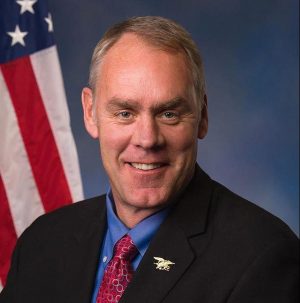
Zinke promises to ‘partner’ with oil industry, as offshore drilling opponents push back
Opponents of the Trump administration’s offshore drilling proposals pressed their case as a first 60-day public comment period drew to a close this week. Meanwhile Interior Secretary Ryan Zinke, speaking at a Houston energy industry conference Tuesday, talked up the offshore plan and other administration moves to streamline drilling and infrastructure permits. The Department of Interior, Zinke said, “should be in the business of being a partner” with industry. >click to read<10:11

Gloucester again at center of drilling fight, along with everyone from every coast.
In the late-1970s, an unlikely alliance between environmentalists and commercial fishermen in this storied seaport helped block plans to open up Georges Bank to oil exploration — an effort that ultimately led to a federal moratorium on offshore drilling. Georges Bank, a shallow and turbulent fish spawning ground southeast of Cape Ann and 100 miles east of Cape Cod, has been fished for more than 350 years.,,, In Gloucester, those who fought similar efforts a generation ago are confident the city can again win a David vs. Goliath battle with energy companies. >click to read< The non-stop articles about the opposition to drilling is overwhelming. No one wants it. Wind farms are the real threat. 14:05
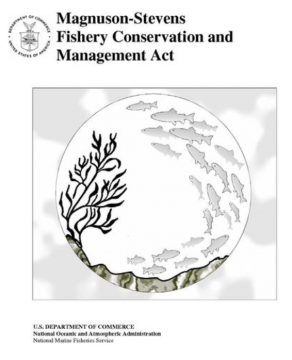
HR 200 – 24 Fishing Groups from Around the Nation Call for Magnuson-Stevens Act Reforms
Twenty-four members of Saving Seafood’s National Coalition for Fishing Communities (NCFC) are calling on Congress to enact broad reforms to the Magnuson-Stevens Act (MSA), including allowing for greater flexibility in how stocks are rebuilt and changes to how new management programs are implemented. The proposals, delivered in a letter to Alaska Senator Dan Sullivan, would, according to the signers, lead to a reauthorization that “allows for both sustainable fisheries management, and the long-term preservation of our nation’s fishing communities.” >click to read< 13:22 
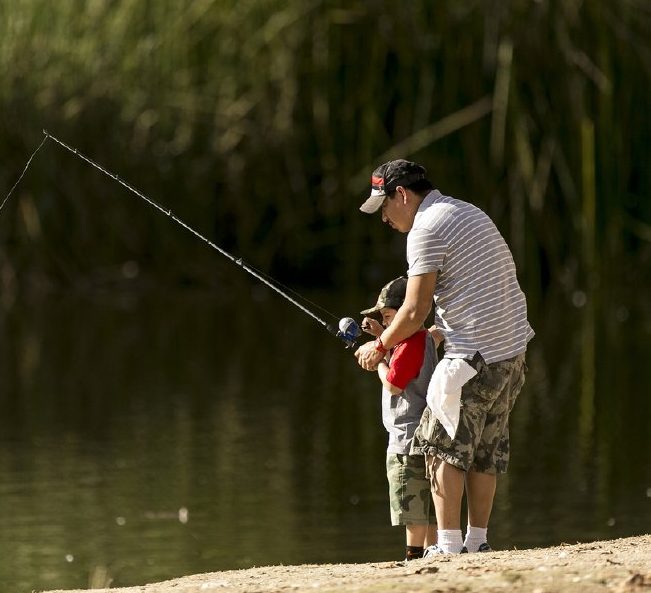
H.R. 200 – More than one way to manage the nation’s fisheries
For the first time ever, reauthorization of the nation’s overarching marine fishery management law will take into account concerns of America’s recreational anglers. In mid-December, the U.S. House Committee on Natural Resources approved H.R. 200, a bill sponsored by Rep. Don Young, R-Alaska, amending the 1976 Magnuson-Stevens Fishery Conservation and Management Act. While the vast majority of the public hails progress on the bill as long overdue, an unusual coalition of environmentalists and commercial fishing entities has roundly condemned it, feverishly depicting the bill as an attack on the oceans and a threat to the future of the nation’s marine resources. >click here to read< 20:57

All Hands on Deck! Sam Parisi gives an update on efforts to get a Fish Bill, wants to know what YOU want included!
First let me thank Fisherynation.com for publishing my letter. I have received many emails and calls from fishermen and fisheries association’s, and it has been great to have them join in with me. I have also had many ask what is this Fish Bill all about ,and they deserve and answer. To be clear, I do not know how to write a bill, and at some point a Senator or Congressman will have to write the bill, with all the specifics spelled out. Now is the time to discuss and add input about what you’d like to see in your US Fish Bill. In the meantime, here is a brief summary of what some of us would like the bill to do. click here to read the story 18:42

Lets meet and build a consensus to have Congress enact a U.S. Fisheries Bill – Sam Parisi
I am a retired fisherman and am very concerned about the fishing future for those who are still engaged in their chosen occupation, and want to devote my time to help protect the future of those that are still fishing. As you know we are faced with many obstacles. I thought we could together fix the problems but there are so many, and the problems continue increasing. From National Marine Monuments closures, forced monitoring costs on those that can’t afford them, allocation cut backs based on science no one has confidence in unless you work for the NOAA, and now a steady wave of industries that want to utilize our traditional fishing grounds along every coast line of the EEZ. click here to read the letter 15:48
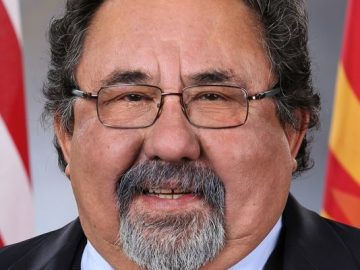
Full Committee Markup on 15 Bills – Magnuson Stevens HR 200 Advances, But Not Without a Fight
House Natural Resources Committee on Wednesday advanced out of committee revisions to the Magnuson-Stevens Act (H.R. 200 (115)) governing marine fishing and management in federal waters. The law is intended to prevent overfishing, but several conservation groups and Democrats are critical of the way it was written. Only three out of 12 amendments to the bill passed, and the bill moved out of committee on a party-line vote, your host reports. Rep. Raúl Grijalva (D-Ariz.), who voted against it, called it a plan to “deregulate our oceans and fish everywhere until there’s nothing left.” click here to read the story Watch the hearing click here 15:30

Why Fishermen Fail To Unite and Resist Being Swept Off of Our Historic Fishing Grounds
As fishermen it often seems we are beset on all sides by so many issues that would disenfranchise us, derail our efforts to safeguard our industry, destroy our livelihoods and communities, and push us off of the historically wild and free ocean. Whether it is in the name of industrial power production or environmental protection, we are up against marine monuments, death by a thousand cuts regulation, forests of windmills, observers, cameras, and tracking systems watching us like an Orwellian nightmare, and grids of closure areas that threaten to push us onto fishing reservations like the Native Americans who once stood in the path of progress. click here to continue reading By Jon Johnson 18:51
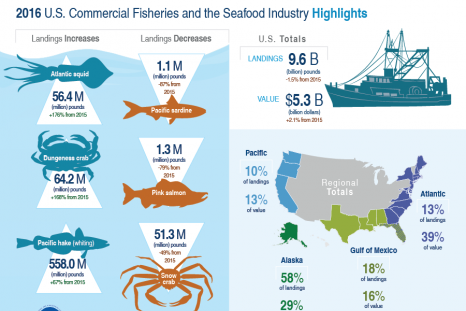
NOAA: American Fisheries Remain a Strong Economic Driver
Commercial and recreational fisheries remain a strong contributor to the United States economy, according to the annual Fisheries of the United States report released today by NOAA.
Saltwater recreational fishing remains one of America’s favorite pastimes and a key contributor to the national economy,,, Also in 2016, U.S. commercial fishermen landed 9.6 billion pounds of seafood (down 1.5 percent from 2015) valued at $5.3 billion (up 2.1 percent from 2015). The highest value commercial species were lobster ($723 million),,, click here to read the report click here for infographics 15:27
Legislative Hearing on 4 Fishery Bills – Tuesday, September 26, 2017 10:00 AM
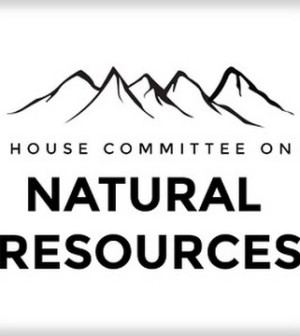 H.R. 200 (Rep. Don Young), To amend the Magnuson-Stevens Fishery Conservation and Management Act to provide flexibility for fishery managers and stability for fishermen, and for other purposes. click here H.R. 2023 (Rep. Garret Graves), To modernize recreational fisheries management Modernizing Recreational Fisheries Management Act of 2017 click here H.R. 3588 (Rep. Garret Graves), To amend the Magnuson-Stevens Fishery Conservation and Management Act to provide for management of red snapper in the Gulf of Mexico, and for other purposes. click here RED SNAPPER Act Discussion Draft of H.R. ____ (Rep. Jared Huffman), To amend and reauthorize the Magnuson-Stevens Fishery Conservation and Management Act, and for other purposes. click here To read the notice, click here 12:29
H.R. 200 (Rep. Don Young), To amend the Magnuson-Stevens Fishery Conservation and Management Act to provide flexibility for fishery managers and stability for fishermen, and for other purposes. click here H.R. 2023 (Rep. Garret Graves), To modernize recreational fisheries management Modernizing Recreational Fisheries Management Act of 2017 click here H.R. 3588 (Rep. Garret Graves), To amend the Magnuson-Stevens Fishery Conservation and Management Act to provide for management of red snapper in the Gulf of Mexico, and for other purposes. click here RED SNAPPER Act Discussion Draft of H.R. ____ (Rep. Jared Huffman), To amend and reauthorize the Magnuson-Stevens Fishery Conservation and Management Act, and for other purposes. click here To read the notice, click here 12:29
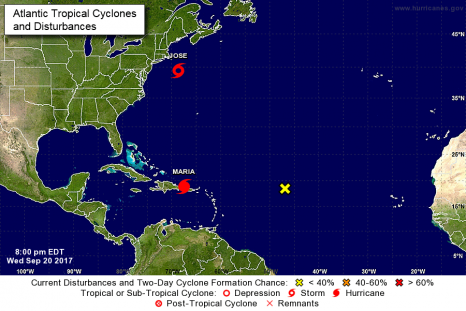
The Latest – Hurricane Maria and Tropical Storm Jose Updates 800 PM AST
At 800 PM AST, the center of Tropical Storm Jose was located near latitude 39.4 North, longitude 68.6 West. Jose is moving toward the northeast near 8 mph (13 km/h), and this general motion with a decrease in forward speed is expected through tonight. A slow westward motion should begin by Thursday night. On the forecast track, the center of Jose is expected to meander off the coast of southern New England during the next few days. click here to read the advisory
At 800 PM AST (0000 UTC), the eye of Hurricane Maria was located by an Air Force reconnaissance aircraft near latitude 18.9 North, longitude 67.5 West. click here to read the advisory 20:23
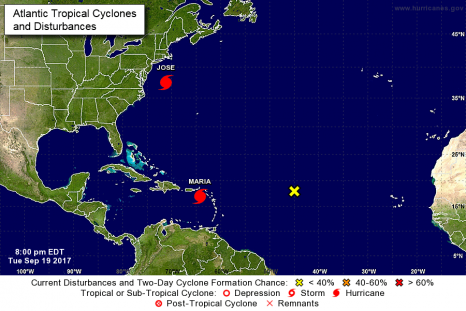
National Hurricane Center – Hurricane Jose – Hurricane Maria Public Advisory’s At 800 PM EDT
Public Advisory At 800 PM EDT, the center of Hurricane Jose was located by an Air Force reconnaissance plane near latitude 37.5 North, longitude 71.2 West. Jose is moving toward the north-northeast near 8 mph (13 km/h), and this general motion is expected to continue tonight. A turn to the northeast is forecast to occur by Wednesday morning. On the forecast track, the center of Jose is expected to pass well offshore of the Delmarva peninsula later tonight, pass well to the east of the New Jersey coast on Wednesday, and pass offshore of southeastern Massachusetts by Thursday. click here to read the update 20:06
Hurricane Maria Public Advisory – 800 PM AST Tue Sep 19 2017 …EYE OF CATEGORY 5 HURRICANE MARIA MOVING CLOSER TO ST CROIX IN THE U.S. VIRGIN ISLANDS …PREPARATIONS AGAINST LIFE-THREATENING STORM SURGE AND RAINFALL …FLOODING AND DESTRUCTIVE WINDS SHOULD BE RUSHED TO COMPLETION click here to read the update 20:12
Trade groups want 10-year requirement removed from Magnuson-Stevens Act
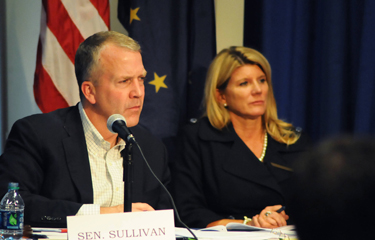 As Congress gets ready to address reauthorizing the Magnuson-Stevens Act, representatives from commercial fishing interests are urging lawmakers to revisit some of the current law’s regulations they feel have hindered the industry. In particular, they’re urging officials to do away with language that caps rebuilding plans for overfished species to 10 years. It’s an arbitrary figure that has too rigidly applied across all federally managed species, said Lori Steele, the executive director of the West Coast Seafood Processors Association, at a hearing Tuesday of the Senate Committee on Commerce, Science and Transportation’s Subcommittee on Oceans, Atmosphere, Fisheries and Coast Guard. click here to read the story 10:50
As Congress gets ready to address reauthorizing the Magnuson-Stevens Act, representatives from commercial fishing interests are urging lawmakers to revisit some of the current law’s regulations they feel have hindered the industry. In particular, they’re urging officials to do away with language that caps rebuilding plans for overfished species to 10 years. It’s an arbitrary figure that has too rigidly applied across all federally managed species, said Lori Steele, the executive director of the West Coast Seafood Processors Association, at a hearing Tuesday of the Senate Committee on Commerce, Science and Transportation’s Subcommittee on Oceans, Atmosphere, Fisheries and Coast Guard. click here to read the story 10:50
The Magnuson Stevens Act and its Ten Year Rebuilding Timeline: Science or Fiction? By Meghan Lapp – click here to read the article
Hearing! 2:30 p.m. on Tuesday – MSA Reauth – Oversight of Fisheries Management Successes and Challenges
 U.S. Sen. Dan Sullivan (R-Alaska), chairman of the Subcommittee on Oceans, Atmosphere, Fisheries, and Coast Guard, will convene the hearing titled “Reauthorization of the Magnuson-Stevens Fishery Conservation and Management Act: Oversight of Fisheries Management Successes and Challenges” at 2:30 p.m. on Tuesday, September 12, 2017. The hearing is the third of the series and will focus on the perspectives of commercial, charter, and recreational fishermen on the state of our nation’s fishery laws. click here to read the press release This hearing will take place in Russell Senate Office Building, Room 253. Witness testimony, opening statements, and a live video of the hearing will be available on www.commerce.senate.gov. 23:24
U.S. Sen. Dan Sullivan (R-Alaska), chairman of the Subcommittee on Oceans, Atmosphere, Fisheries, and Coast Guard, will convene the hearing titled “Reauthorization of the Magnuson-Stevens Fishery Conservation and Management Act: Oversight of Fisheries Management Successes and Challenges” at 2:30 p.m. on Tuesday, September 12, 2017. The hearing is the third of the series and will focus on the perspectives of commercial, charter, and recreational fishermen on the state of our nation’s fishery laws. click here to read the press release This hearing will take place in Russell Senate Office Building, Room 253. Witness testimony, opening statements, and a live video of the hearing will be available on www.commerce.senate.gov. 23:24
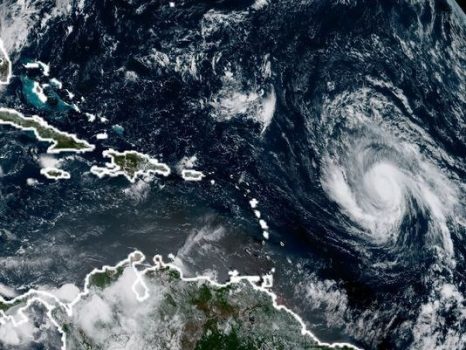
UPDATED 23:00 – Hurricane Irma now a powerful and dangerous Category 5 storm
Hurricane Irma is now a very powerful and dangerous Category 5 storm. According to the National Hurricane Center, Irma has winds of 175 mph and is expected to affect the northwestern Leeward Islands as an extremely dangerous hurricane accompanied by life-threatening wind, storm surge, and rainfall. The latest data shows the storm moving west but that would keep Jacksonville and the First Coast in the front right quadrant or the worst side of the storm. All of Florida is in the cone of concern. click here to read the story 09:06
UPDATED 23:00 National Hurricane Center – 1100 PM AST Tue Sep 05 2017 Hurricane Irma Public Advisory click here

Aquarium-Business Owner Admits to Trafficking Protected Corals
The owner of an aquarium business in Puerto Rico pleaded guilty Wednesday to harvesting protected reef creatures and selling them off island. Aristides Sanchez ran his saltwater aquarium business, Wonders of the Reef Aquarium, in his hometown of Arecibo, Puerto Rico. Prosecutors say native Puerto Rican marine species accounted for a large part of Sanchez’s business, and that he sent live specimens to customers in the mainland United States and foreign countries by commercial courier services. “From January 2013 to March 2016, Sanchez sent or caused to be sent at least 130 shipments of falsely labeled marine species that were illegally harvested in the waters of Puerto Rico,” the Justice Department says. click here to read the story 13:25






